The Football Fandom
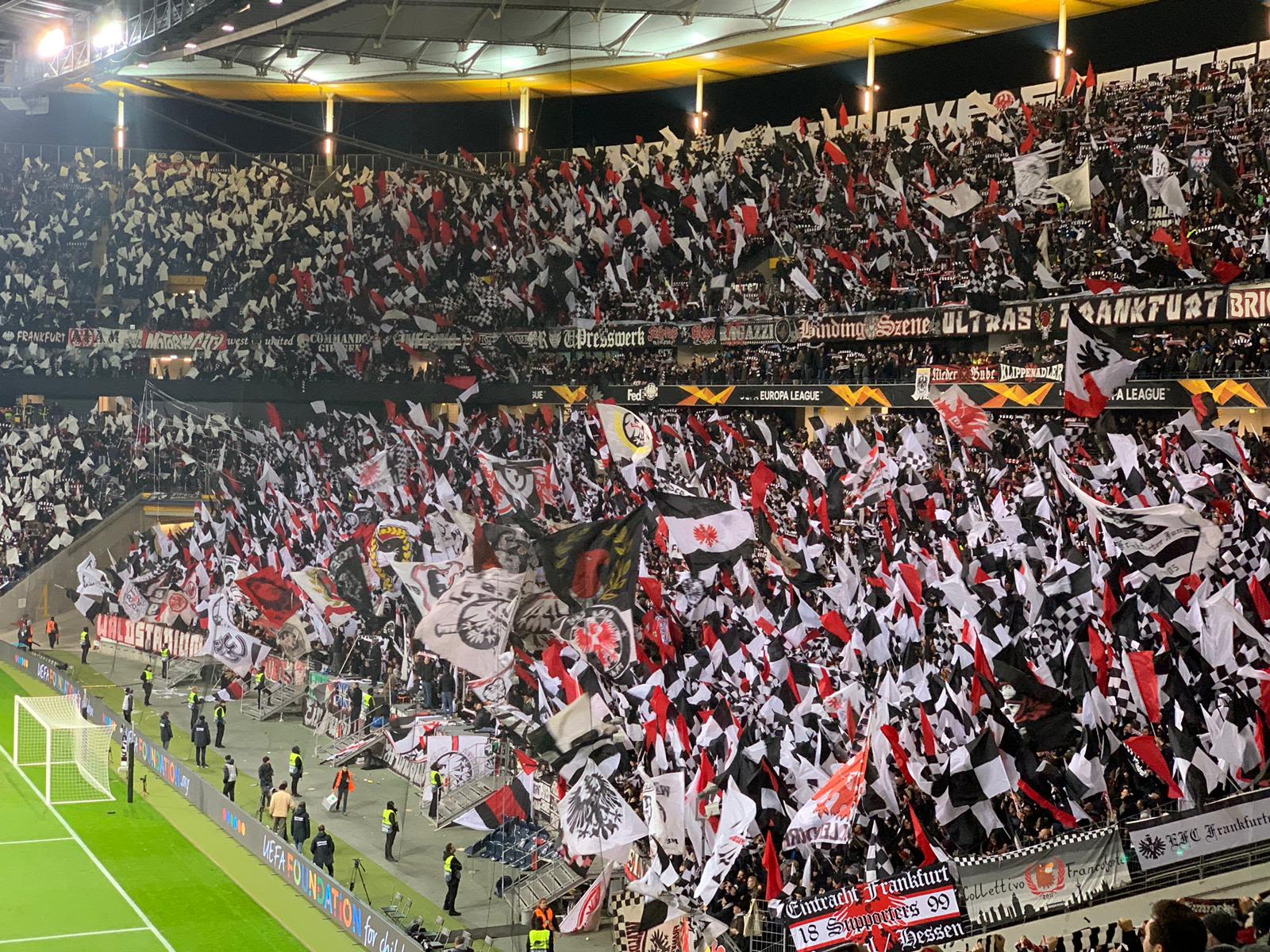
Fan community in football is one of the most important components of the sport. Supporters can enjoy, be annoyed, exchange ideas and talk to one another. But unfortunately, a good fan experience isn't open to all: hate and resentment are big parts of football fan culture. The discrimination suffered by females is significant. Misogyny is an almost daily companion for female fans, whether in the stadium, in social situations or even online.
‘Just because you are a woman, you know less’
“I always loved football,” Jùlia Belas shares. The Brazilian national moved to the UK in January 2022 and currently works as a freelance writer for The Guardian. Jùlia grew up going to football stadiums with her mother back in Salvador, and once the time came to apply for jobs, she knew she wanted to work in what she loved.
When Jùlia experienced misogyny in the past, the comments were always aimed at her knowledge of the sport: “Most of the time, my opinion was neither heard nor validated. People assume that, just because you are a woman, you know less.”
When she was young, the need to fit in was so big that Júlia would find herself engaging in misogynistic behaviour towards other female fans just to appease other spectators. However, she believes there is less need for young female fans to do this nowadays as the overall situation has improved, and more females are accepted at football games: “While I was growing up, it was uncommon for women to show an interest in football. Now, there are women supporters groups, families go together to games, and it is more common to see young girls liking football. However, there is still a lot of harassment and prejudice.”
Jùlia hopes to see several improvements for females in football in the next few years: “Equal pay for players, financial incentives in grassroots women’s football, more women - especially women of colour - being hired by the media and more women in coaching positions. There is more recognition and incentive, but there is also a lot more to do to continue to fight for equality.”
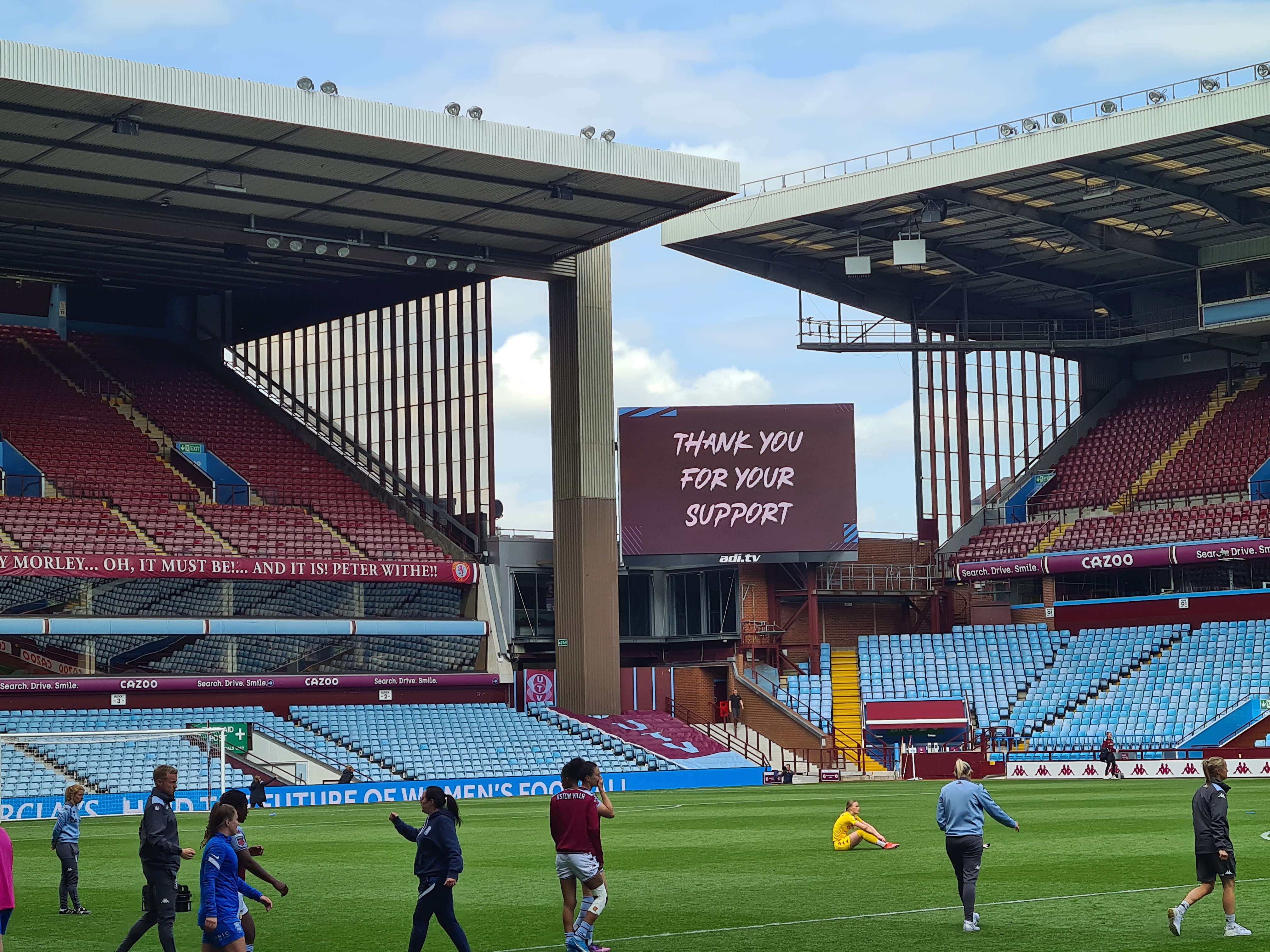
‘I would never go to a game alone’
A female fan, who has wished to be kept anonymous for safety reasons and therefore will be referred to as Alice, has experienced grave abuse online. Alice has been a football fan for over 20 years, and she says the most aggressive misogyny she has experienced is on social media.
The messages she receives vary, some being flirtatious and about her appearance. Alice says: “I find it quite intimidating when men message me like this – they often tell me they’ll try to find me at games, and I’ve been asked whether I live alone. It makes me feel quite unsafe, and I would never go to a game alone because of this.”
However, the latest messages Alice has been receiving are fuelled by hateful abuse about the fact that she is a female football fan. The only thing Alice wanted to do was to attend a match of her favourite team when an anonymous Twitter user insulted her in a vicious way. The perpetrator said he wished her to end up like Sarah Everard, a young British woman who was raped and murdered by a police officer in 2021, or for her to “be a woman [and] go and get [herself] assaulted.” And this nasty comparison was only because Alice is a football fan.
It’s not only hateful messages like this that scare Alice: “Misogynistic chants also make me feel very uncomfortable. The people singing them will rarely stop to think what they’re saying, but when you’re one of the few girls on a train home from a game, and everyone’s chanting happily about sexual assault and abuse, it makes you feel very aware of yourself and your presence as a woman among a group of men. I can’t join in with these chants.”
“I find it harder to speak up in private interactions, like direct messages, than I do on my public social media feed,” Alice shares nervously. To overcome this, she posted screenshots of the aforementioned abuse on her public Twitter feed. This felt “simultaneously more empowering and much safer.”
Although her own experiences with misogyny impacted her life, Alice feels that the overall situation for females in football is improving: “Initiatives like Her Game Too have given women and girls a platform and safe space for discussing their experiences of football, and I think this confidence has helped people like me speak up and challenge misogyny.”
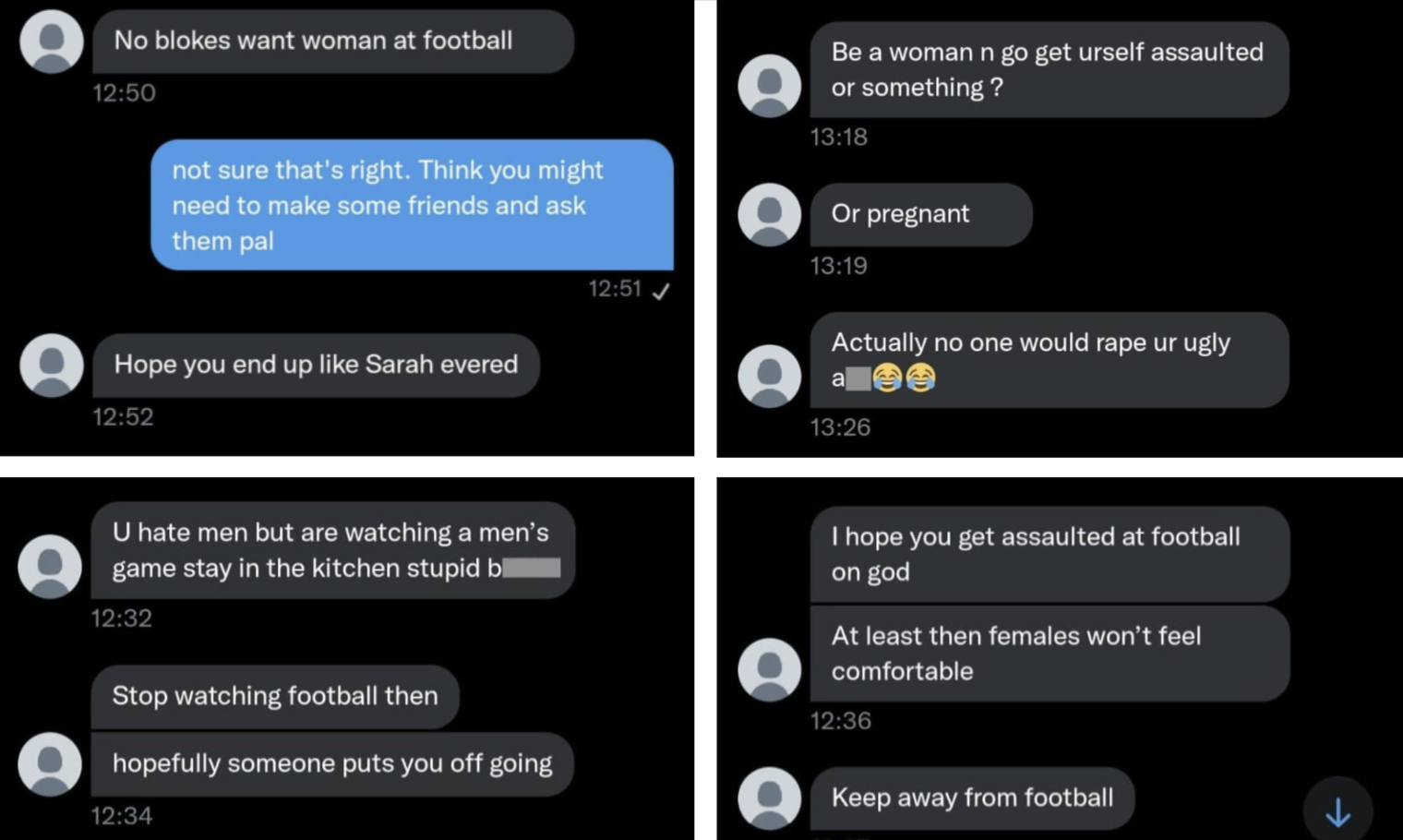
Messages Alice (name changed) received from an anonymous abuser on Twitter
Messages Alice (name changed) received from an anonymous abuser on Twitter
The positive responses Alice received for opening up about her abuse far outweighed negative criticism, and she came away from the experience surprisingly uplifted. She feels that there is a clear consensus that females in the football fandom need to make a stand against abuse of all kinds. "More needs to be done to make football a ‘normal’ experience for women, but I think most people are ready to confront that challenge.
Despite major hurdles, including a culture of excessive drinking, and the persistence of offensive chants Alice is confident about the future: "these things will take time and action to resolve, but I’m optimistic – especially given the positive and supportive response my experience of abuse generated.”
Alice has a few suggestions on how football can improve: “The media can certainly do more. I had some good and some awful experiences with the media in the wake of my abuse. I was pressured to give personal information, including my surname and a photo of myself, in an article which cheapened and trivialised my experiences. Journalists should do more to support victims of abuse in all walks of life."
Other suggestions include empowering more women into backroom and managerial posisitions in male football. Chelsea Womens' head coach Emma Hayes helped generate discussion about the prospect of female managers in the men's game.
And finally, Alice believes “clubs can also do more to encourage women to attend. Doncaster Rovers have offered a financial incentive to women, but I think safety is a more pressing concern. Concrete reassurances and about what women can expect from stewards and safety professionals, easily accessible information about how to report abuse and harassment, and promises that their voices will be heard would all be good incentives.”
‘It has affected my mental health’
Amy Fieldhouse-Downes attended her first Ipswich Town FC game at the age of 10 with her father: “Bless my dad, having been teased relentlessly, that three girls meant no one to go to the football with. Then he ended up with all three of us going, and football has stayed with me all my life.”
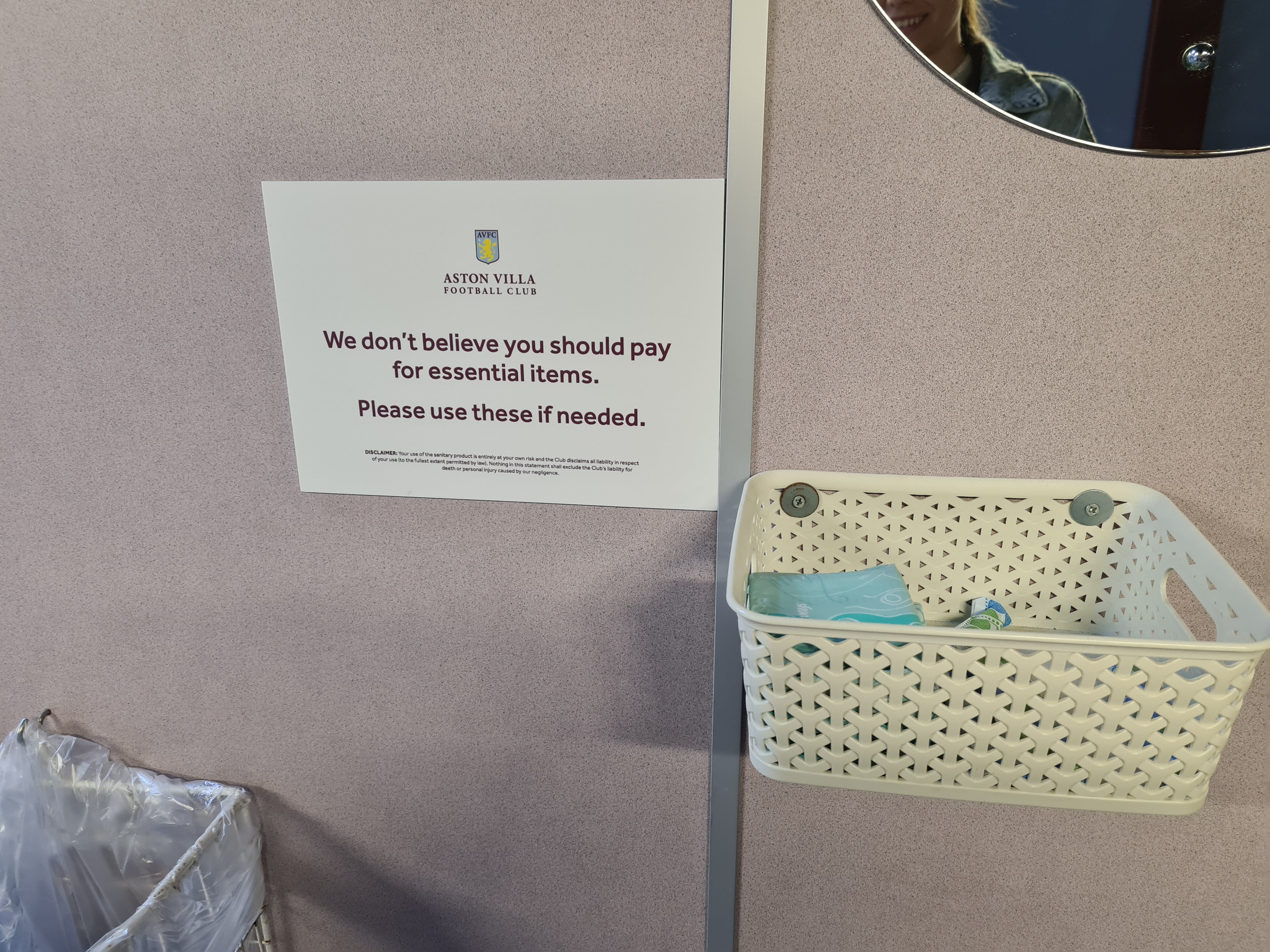
After going to football games for over 25 years, Amy has had a range of experiences: “I do want to say that the vast majority of my life as a football fan has been positive, but I think the fact that most of us as women have experienced some form of sexism at football is why we have to stand up and talk about it right now.”
Amy is an opinionated woman. Unfortunately, she has learned over the last ten years that with strong opinions, comes online abuse.“Sometimes it's just been disagreements, and that's absolutely fine. But it very, very quickly turns personal, and when it does turn personal, it always goes against my gender. I cannot tell you how many times I've seen messages either sent directly to me or sent publicly, saying ‘I feel sorry for her kids she must be a terrible mother, she shouldn't be a mother.’ I've had, and this one was more recently, ‘I feel sorry for her husband, can't believe anyone would marry that’.”
The abuse Amy has faced online has ranged from patronising comments to very abusive words: “Don't talk to me like I'm a woman. Talk to me like I'm a football fan. I've had quite a lot of online bullying over the years, and it has affected my mental health massively, which is another reason I think it's really important to talk about the humans behind the screen.”
Sometimes a lack of understanding can seem like misogyny, Amy notes: “There is definitely just blatant awful sexist abuse. But at the other end of that scale is just underlying unconscious bias. I'll be on the train to the football and people will be absolutely gobsmacked that I'm a woman going to the football and going on my own. "
“I had a conversation with a Leeds Rhinos Fan," Amy recounts excitedly, like she still can't believe this really happened to her. "She said she went to games when she was younger because she went with her dad, but there was a period when she was a teenager when she didn't go because she couldn't - she was too old to go with her dad, but she didn't have a husband to take her. Then, when she had kids, she couldn't go because she had the kids to look after, so she was absolutely mind blown about the fact that I'm not only a woman going to games on her own, but that I'm a mum who goes to games. So for me, that signified the underlying bias that people have, and I do often get asked ‘oh, what do you do with the kids?’ Which to me seems strange because you would never ask that of a man.”
In person, Amy feels that she receives abuse less frequently compared to online. However, it does still happen: “I have had incidents of misogynistic behaviour, and the one that really stands out is when I was on my way home from a game. I was changing trains and I just sat down on the platform and these two blokes came over, and we chatted, and they very sweetly asked if I was fine, and I said ‘Oh yeah, thank you.’ I thought, well, this is good. I've got people to be with, and I'm safe. "
This is when the situation changed. A feeling so many females in football have experienced, the feeling of safety suddenly stripped away from them. Amy continues sharing what happened to her: “So we were chatting away about football and when we got on the train I sat down with them. I told them I'm married. I told them I've got kids. We had a nice chat about that. And then, one of them leans over the table and kisses me right on the lips. I was just absolutely gob smacked. His mate pulled him back gently, he didn't make a big deal out of it, but just said to him, ‘that's out of order. Don't.’ And the guy apologised, saying he was a bit drunk. So I sort of brushed it aside, but then he did it again. So I caught the eye of an Ipswich fan, and I said ‘Oh wow more Ipswich fans, I’m going to sit with them’ and they must’ve realised something was wrong, so they let me sit with them, only for a few more stops, but I was able to remove myself from a difficult situation.”
“I think this is about safety and the fact of men just thinking they have this sort of superiority over us in that area, and that is what worries me,” Amy says. “It's the toxic masculinity and the idea of their perception of superiority in the game. I honestly couldn't tell you how many times I've been pinched on the bum, either in the pub or at football on the concourse. It’s not something that happens everywhere as an adult, it definitely is more pronounced at the football because of that being a male dominated area.”
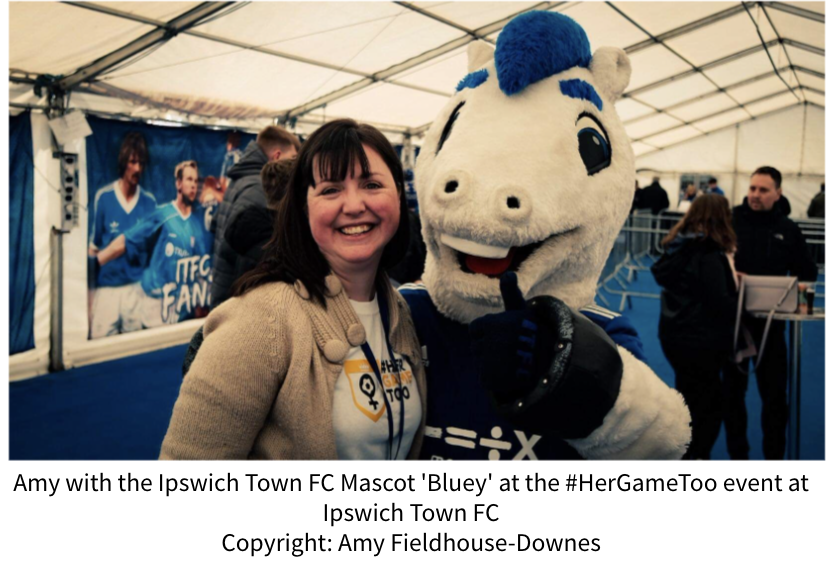
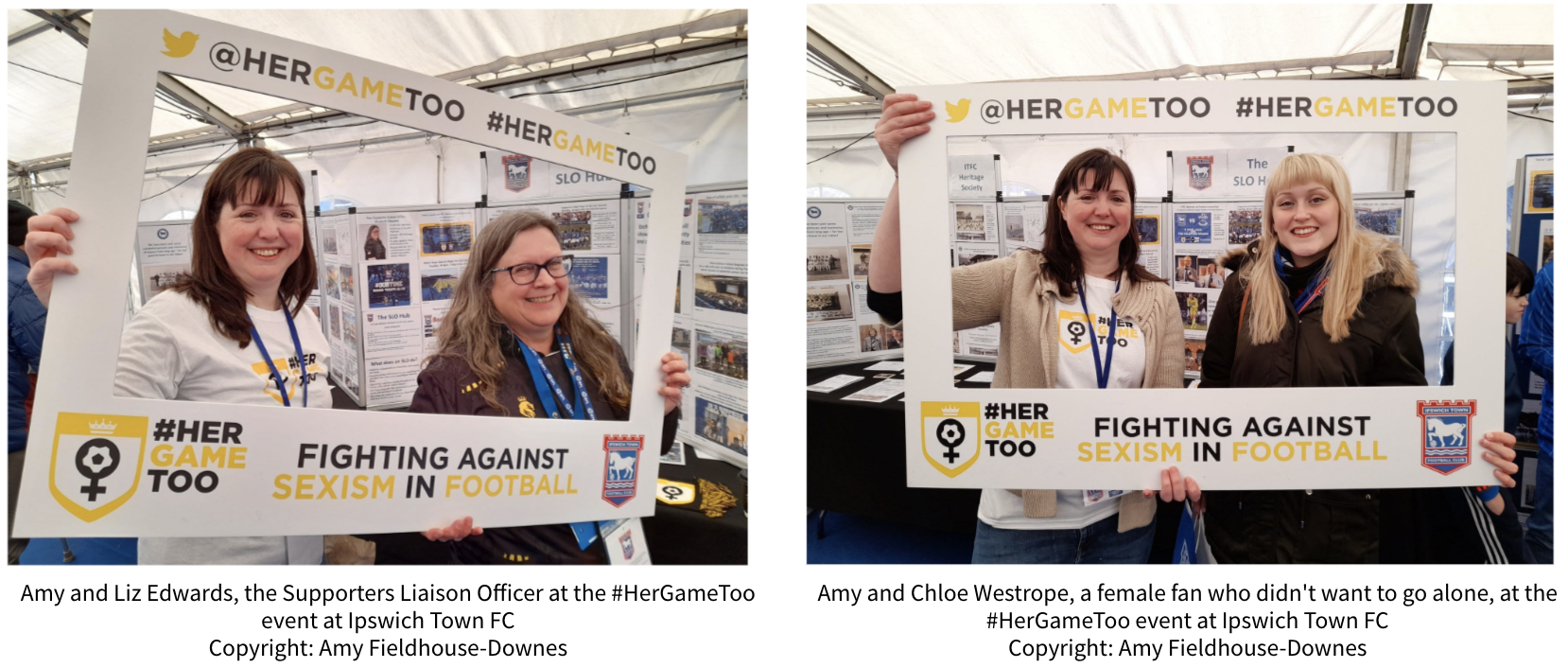
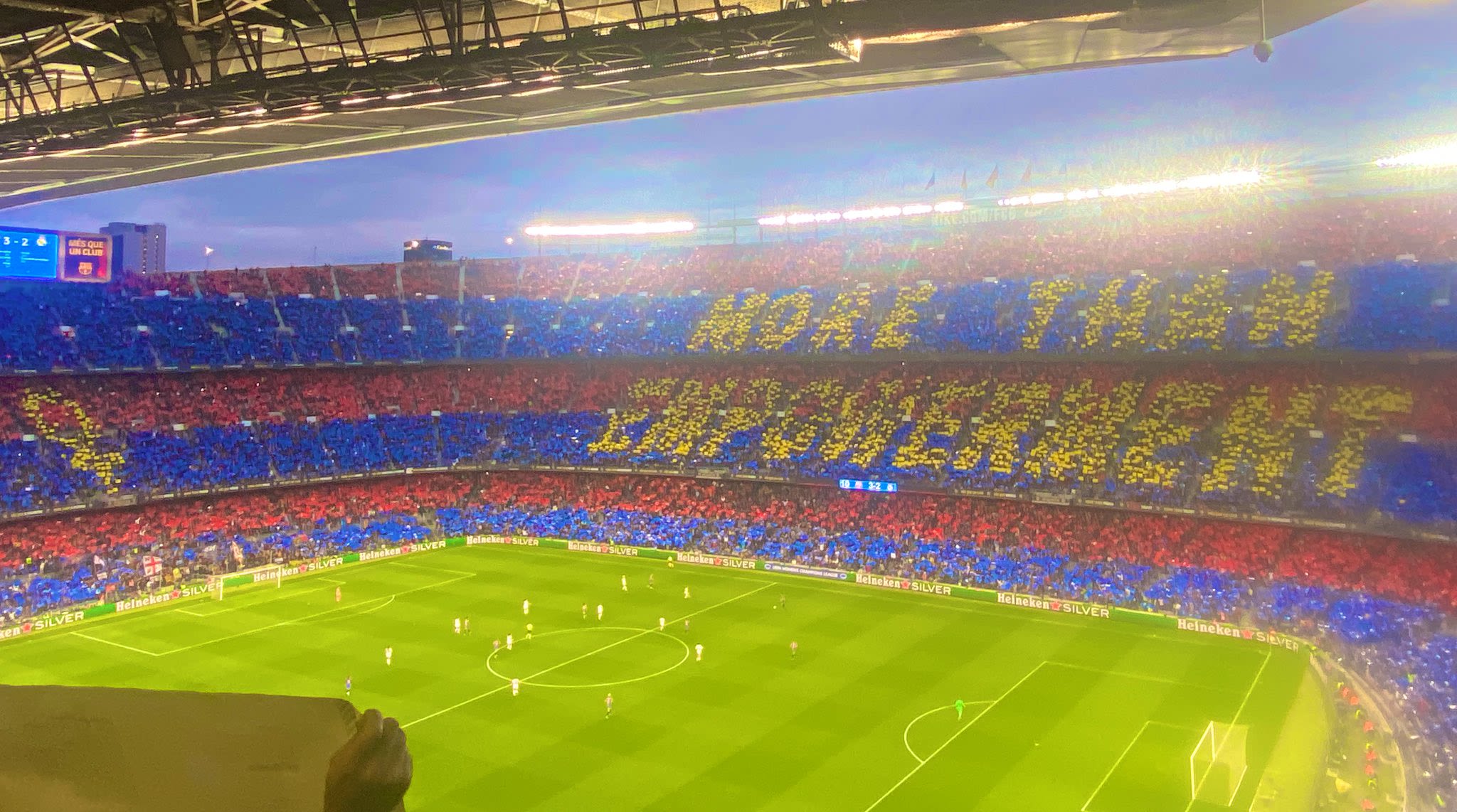
‘No offence, love, but you'll never understand’
Brianna is originally from the United States and came to England to study at university: “I wanted to study media marketing and football, so I got a bachelors degree in media studies. Being someone who was here to do my full degree, a lot of my tutors asked what brought me over here, and really it was football. When I finished, they encouraged me to go for my master’s degree in football media and fan relationships, so I did that.”
Currently, Brianna runs her own business, moving away from working in football. But she did work in the sport for a while: “I did a work placement for Liverpool Football Club, and then I actually worked for Everton. I worked in the community and that was quite rewarding in a sense. However, I worked with a lot of older people, and a lot of them were obviously big Everton fans and especially the older men definitely just disregarded anything that I had to say about the game.”
The worst situation Brianna has experienced in the fandom was in a taxi in Liverpool: “The driver was saying, ‘oh, you Americans call it soccer. Americans never understand the game and no offence, love, but you'll never understand it. You'll never understand the rivalries. You'll never understand the fan base.’ I told him I was about to finish my post graduate degree in football, and he just said ‘oh, OK,’ and stayed silent. I think this hit me so hard because he was very adamant that I was incapable of understanding football. ”
“I have been accused of just watching football to watch men run around in shorts," Brianna rolls her eyes and shakes her head sharing this misognyisitc experience. "I remember being in a pub once, where I was wearing my Liverpool top. I was towards the back of the area that had the big screen and a guy stood in front of me and his mate said, ‘Oh hey, you know she can't see behind you’ and the guy looked at me, and he went back to his mate and he said, ‘she's not watching anyway’.”
Brianna believes social media culture plays a big role in the lack of equality between male and female fans: “I just want to go out there and just talk about the game while it's happening or my own thoughts about the transfer window, but I feel maybe I don't hold as much weight as a girl who's prettier than me. I know that sounds awful, but sometimes I feel like that. I think people kind of pay more attention to the prettier football fans than the ones who are not on par with the male perception."
Males dictate who can say what in football, Brianna feels. “Even with people like Alex Scott. She's utterly fantastic, but I just feel like it doesn't matter what comes out of her mouth because she is female and social media is so horrible, men in particular are going to be quick to get on there and discredit her. I don't understand where they get off on that, honestly. You just go to the comment section on anything, and it's just awful, even recently. People don't really care what I have to say. It just doesn't seem to hold as much weight as if it was coming from a man.”
When Brianna encounters misogyny, she has struggled to speak up for herself in the past: “I think places like the pub, I was still very quiet, and I think it was just more disbelief and not really knowing what to say. I don't want to say the wrong thing and then with my accent. I don't want to make things worse, so I think in those instances I was just quiet.”
She does believe that a lot of the issues with misogyny in UK football come from the early years in the UK, when girls are groomed to play netball in school rather than football, something very different to the USA. “My husband will talk to me about football, but when I ask if we should go out for a kickabout, he always declines. Apparently, it's unheard of here to have men and women playing together.”
Overall, however, Brianna can see football improving for the better: “I do think it's more OK to be a female football fan. The only problem is things like social media that can make it really difficult. I've not been to a game in a very long time, but the last few times I went, I was fine. Social media makes it hard. I think, ‘should I put my opinion on Twitter?’ But now I say, ‘yeah, I'm just going to put it out there.’
“I think women in leadership is important. Men are just going to have to realize just to chill out," Brianna shares passionately. "There's some people who say, ‘oh, I have these opinions strictly just because I prefer a male commentator's voice’, and maybe that is true. I mean there is a bit of an uproar if it is a female commentator, an unnecessary uproar, but I do think that it does help, and I honestly do think having females in leadership roles in football does make a big difference.”

‘Dad must have trained me well’
“I’ve loved football for as long as I can remember” Holly Scott says. She has been going to football games for over 13 years, attending her first Manchester United game at the mere age of 5. “The United score dictates my mood, that goes for both the men's and women's teams.”
Holly says she experiences misogyny very often: “Whenever I wear a United top or go to Old Trafford people make comments saying how my Dad or Grandad force me to go or how they must be disappointed that I’m a girl as that clearly means I love football less than men, which is completely untrue.”
“It’s the remarks of how my ‘Dad must have trained me well’ or that I ‘know my stuff, for a girl’ not to mention the shocked looks on people's faces whenever I talk tactics, transfers and specific performances. Whenever I have a contradicting opinion I’m ‘aggressive’ or ‘deluded’, but a man can say the same thing and a sudden willingness to agree to disagree comes up.”
Overall, Holly does believe the situation for females in football is improving: “I think the emergence of prominent female footballers as pundits has greatly helped. There are a lot of male pundits who are purely employed because of their name, not on the basis of their football knowledge. These are slowly being replaced by women who know football inside out. I’m not too sure if there will ever be complete equality, but I can hope for the future.”
Holly hopes to see a few improvements to empower females in the sport: “I wish to see women with knowledge of football hired to do footballing roles, and not just because they are women. I want to see more investment into women's football so that we can have more viable professional women’s teams and a sustainable hierarchy, I want to see proper women’s football academies.
“I want to see increased prize pots, so women's teams can afford to compete in their leagues and cup competitions and I also want to see women’s teams have their own stadiums as too often top teams in the WSL have to use non-league and lower league stadiums which means that often games are called off due to conditions. I want female fans to be welcomed and just treated like the male fan base.”
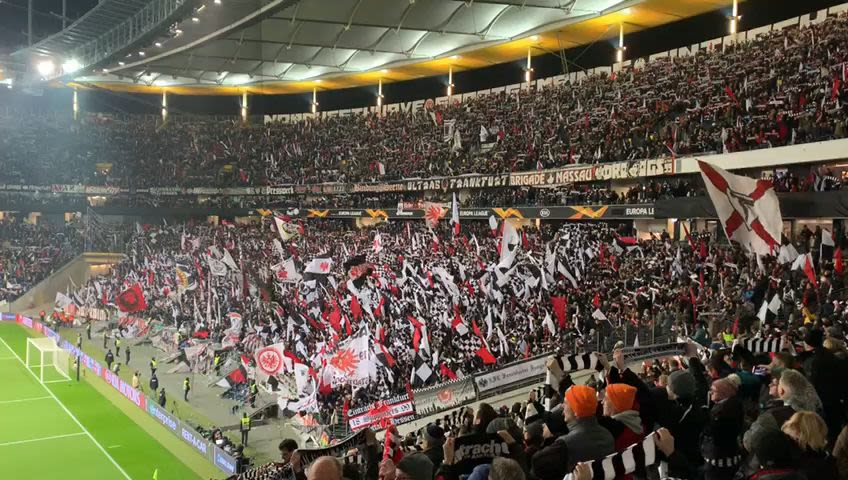
‘Football is more than a matter of life and death’
However, for these fans, there is so much love for football.
For Alice, football is a way of escaping from daily life. “It’s a healthy and welcome distraction from mundane things. Increasingly, it’s been a way of making friends – social media has been wonderful for this. Recently, it’s been a means of personal and collective empowerment for me. Her Game Too asked me to be an advocate for them in the wake of my abuse, and it’s been fantastic to have a group of girls to talk about all aspects of the game with, who will back me up if I experience any further harassment.”
Football plays a huge role in Holly’s life: “It’s the way I connect with so many of my loved ones, from my Dad and Grandad right through to my best friend, who I formed a close bond with through football. The scores that week affect what mood I’m in, and I spend unbelievable amounts of money to watch and support my team.”
Brianna only started watching football because a friend told her to watch a Liverpool game: “What really captivated me was that everyone was singing. People are singing, and they're holding up scarves - I didn't understand. I watched it more and more and just fell in love with it so much.”
Now, football plays a huge role in her life: “I met my husband through football. It's really enjoyable. I love being part of a community of other football fans. We all have our different opinions on how it should be run or this player and that player, and that performance of that game and everything. But at the end of the day, we all love Liverpool. Well, until you get comments about how you can never understand because you are a woman.”
For Jùlia, football is her work, her personal life and her activism. She says: “It is part of some of the highs and lows of my life. I am passionate about it and I think I always will be.”
“I got married last summer,” Amy says, “and my dad's speech began with ‘when you think of Amy, you think of football’. Football is a huge part of my life, to the point where my husband has a running joke about where he stands in my priorities. Football doesn't come first, of course, like you have to balance out, and you have to pick your family life first and your career first and things like that. But football is hugely, hugely important to me. And I will go to great lengths to be able to be a part of this world.”
Amy has travelled across the country to support her club, including a drive from Yorkshire to Ipswich to be able to watch the game where the Her Game Too campaign was introduced to the club. “It's the only thing I have felt this passionate about for this long in my life. This isn't just a fad. This isn't just something silly. This is a passion for me. I would not be me if I wasn't a football fan.”
For Amy, the words of former Liverpool manager Bill Shankly echo what football means to her: “Football is more than a matter of life and death. That's what it is for me. I always believed that. I could never see anything coming first over football. I joke, of course my kids do. But because football means so much to me, I have found a way to get a good balance between loving my family and loving my club.”
“For my whole life," Amy swoons, "they are the only thing in the world I know will still be there when I reach the end of my life, too. So they are my true love."

